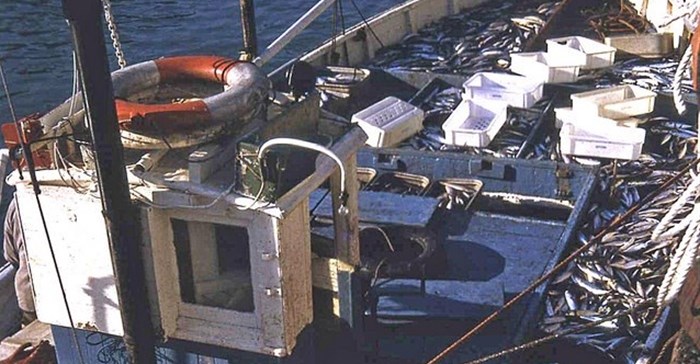
The one-year permit was authorised weeks before tomorrow's scheduled start of the fishing rights allocation process managed by the Department of Agriculture, Forestry and Fisheries. It was signed by Justice Matshili, the department's head of fisheries development and research.
Booi, who holds a seaweed harvesting right and heads an empowerment consortium called Buyambo, insisted this week that the quota was not a purely commercial venture but an attempt at poverty relief.
He said his plan was based on a successful project in Namibia, where part of the fish stock was reserved for local consumption, and denied that his quota had anything to do with his ties to the ANC. "I'm an out-and-out entrepreneur. This is non-political," he said.
However, the South African Midwater Trawling Association said it was disturbed by the move. "We are considering our response," said association secretary Johann Augustyn, a former chief director of the department.
Several fishing sources, who requested anonymity for fear of recriminations, said Booi's permit made a mockery of the long-awaited rights allocation process that involves external auditors and checks and balances.
"It looks like a scam to get this guy a horse-mackerel right," said one. "If you are going to get a right, you should meet the criteria in a fair and transparent way."
The department said it had not been necessary for an internal committee handling experiment applications to vet Booi's permit, because it was a "scientific investigation".
"This is a socioeconomic study based on the need to fully understand the supply, demand and affordability of fish and fish products by rural communities, and to determine the extent to which rural communities desire using fish as a cheap alternative source of protein," said department spokeswoman Palesa Mokomele.
The department said the study would enable it to make a well-informed decision on the use of fish as a protein source for poor communities.
But industry sources point to inconsistencies in the application procedure:
"The "experiment" allows Booi to catch horse mackerel in an area west of Cape Agulhas, which is out of bounds to other rights holders;
"Horse mackerel stocks are shrinking and the resource is already "fully subscribed"; and
"Booi does not have access to a suitable trawler.
He proposed using the 23m Boetie Bert, which is about a fifth of the size of the only other operational horse mackerel boat, the Desert Diamond, operated by Oceana Fishing.
There are 13 commercial horse mackerel quota holders in the 57,000-ton fishery.
Booi's quota is said to be worth between R80-million and R150-million, but industry sources questioned whether it was viable. The low-value fish is tricky to catch and rights holders all use the Desert Diamond. Booi conceded he would require significant capital investment but said it was not intended to be a "commercial" quota.
ANC sources described Booi as an influential business figure in the Hermanus area, and said the quota should be viewed as transformation within fishing.
Booi said the quota was a paradigm shift away from a purely commercial use of fish resources: "People are poor - it is not a joke. This is something that could be shared by all South Africans. Let us explore jointly. If we get this right, it could be the best story this country has ever had."
By contrast, industry sources said the plan reeked of a get rich scheme at the expense of dwindling fish stocks. "If you want to do a socioeconomic experiment, you go and do a field study of the community. You do not go and catch 8,000 tons of fish and then plan how to give it to the community," said one. "If you can do this with one resource, you can do it with any resource."
Source: Sunday Times

For more than two decades, I-Net Bridge has been one of South Africa’s preferred electronic providers of innovative solutions, data of the highest calibre, reliable platforms and excellent supporting systems. Our products include workstations, web applications and data feeds packaged with in-depth news and powerful analytical tools empowering clients to make meaningful decisions.
We pride ourselves on our wide variety of in-house skills, encompassing multiple platforms and applications. These skills enable us to not only function as a first class facility, but also design, implement and support all our client needs at a level that confirms I-Net Bridge a leader in its field.
Go to: http://www.inet.co.za